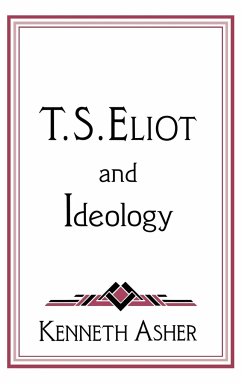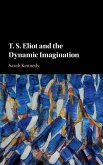To date the study of T. S. Eliot's development has traditionally posed one major obstacle: the problem of connecting the periods before and after his religious conversion. What does the young aesthetic revolutionary and author of The Waste Land have to do with the later champion of Christian orthodoxy? Faced with this problem, scholarly inquiry has for the most part agreed that a radical rupture took place in 1927, as Eliot's skepticism was overcome in one leap of faith. Such a view, however, obscures the history of Eliot's political commitment - which was in fact of longer standing and more deeply seated than has previously been acknowledged. In T. S. Eliot and Ideology, Kenneth Asher argues instead for a strongly continuous Eliot, an Eliot whose work from beginning to end was shaped by a vision inherited from a French reactionary tradition that culminated with Charles Maurras.
Hinweis: Dieser Artikel kann nur an eine deutsche Lieferadresse ausgeliefert werden.
Hinweis: Dieser Artikel kann nur an eine deutsche Lieferadresse ausgeliefert werden.








